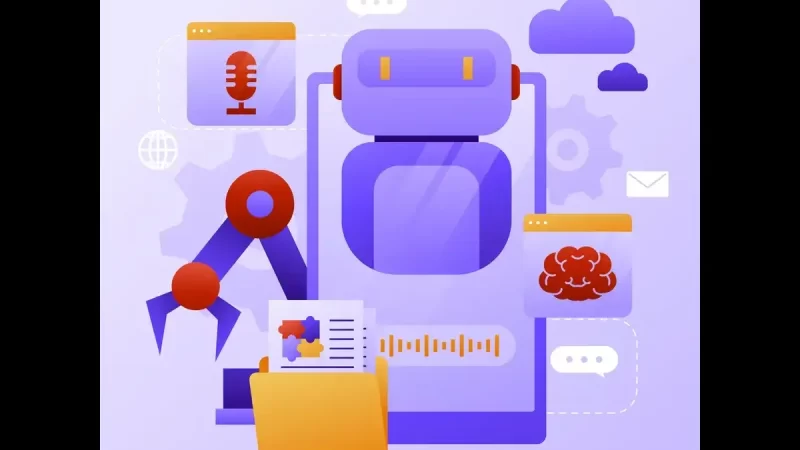OpenAI’s ChatGPT and API Service Outages: The Latest Updates

OpenAI’s ChatGPT and API service have become popular tools for developers, businesses, and individuals seeking powerful AI-driven conversational capabilities. However, like any other technology, they are not immune to occasional outages or service disruptions. In this article, we’ll explore the latest updates on OpenAI’s ChatGPT and API service outages, what causes them, how OpenAI addresses these issues, and steps you can take to mitigate their impact.
What Are Service Outages?
Service outages are periods when ChatGPT and the OpenAI API are not functioning as expected or not accessible. These outages can vary in duration, from a few minutes to several hours, and their impact can range from mildly inconvenient to significantly disruptive, depending on your reliance on these services.
Causes of Outages
Service outages can be caused by a variety of factors, including:
- Server Overload: An influx of users and requests beyond the capacity of OpenAI’s infrastructure can lead to service instability. This often occurs during peak usage hours or when a new, popular feature is released.
- Bugs and Software Issues: Software bugs, glitches, or errors in the system’s code can trigger outages. While OpenAI’s team conducts extensive testing, unexpected issues can still arise.
- Maintenance and Upgrades: Scheduled maintenance or system upgrades can temporarily interrupt service. OpenAI typically tries to plan these events during low-traffic periods to minimize disruption.
- External Factors: External factors such as network problems, DDoS attacks, or issues with third-party services used by OpenAI can also cause outages.
OpenAI’s Response to Outages
OpenAI is committed to providing a reliable service and works diligently to address outages as quickly as possible. Here are some key steps they take:
- Monitoring: OpenAI closely monitors the performance of their services, which allows them to detect issues promptly.
- Incident Response: When an outage occurs, OpenAI’s incident response team is activated to investigate and resolve the problem.
- Communication: OpenAI maintains open lines of communication with its users during outages. They provide updates on the status of the issue, estimated time for resolution, and any actions users may need to take.
- Post-Incident Analysis: After resolving an outage, OpenAI conducts a post-incident analysis to understand the root causes and identify ways to prevent similar issues in the future.
Mitigating the Impact of ChatGPT and OpenAI
While OpenAI is diligent in addressing outages, there are steps you can take to mitigate their impact on your projects:
- Diversify Your Infrastructure: Relying solely on ChatGPT and the OpenAI API may leave you vulnerable to outages. Consider diversifying your infrastructure by incorporating backup systems or alternative solutions.
- Subscribe to Updates: OpenAI provides updates through their status page and social media channels. Subscribe to these updates to stay informed about service status and receive notifications of incidents.
- Error Handling and Recovery: Develop robust error-handling mechanisms in your applications that can gracefully handle service disruptions and recover when the service is restored.
- Preparedness: Be prepared for outages by understanding how to use the service without API calls or by implementing rate limits and error handling strategies in your applications.
- Regular Backups: If you use ChatGPT for important tasks, regularly back up your data and responses. This ensures that even during an outage, you have access to critical information.
Key Takeaways
Service outages are an unfortunate but inevitable part of using technology services. OpenAI is committed to minimizing the impact of these outages and continuously improving their services. By understanding the causes, OpenAI’s response, and taking proactive measures to mitigate their impact, you can use ChatGPT and the OpenAI API more effectively in your projects. Stay informed, stay prepared, and make the most of this powerful tool, even in the face of occasional disruptions.
FAQs:
A service outage refers to a period when ChatGPT and the OpenAI API are not functioning as expected or are not accessible. During these outages, users may experience disruptions in service.
Common causes of service outages include server overload, software bugs, maintenance and upgrades, and external factors like network issues or DDoS attacks. These factors can lead to temporary disruptions in service.
OpenAI responds to service outages by closely monitoring their services, activating an incident response team, providing regular updates to users, and conducting post-incident analysis to understand the root causes and prevent similar issues in the future.
You can stay informed about service outages by subscribing to updates through OpenAI’s status page and following their social media channels. This allows you to receive notifications of incidents and stay up to date on service status.
To mitigate the impact of service outages, you can diversify your infrastructure, develop robust error-handling mechanisms, be prepared for outages with backup plans, and regularly back up your data and responses. These proactive measures can help you continue to use ChatGPT effectively even during disruptions.







